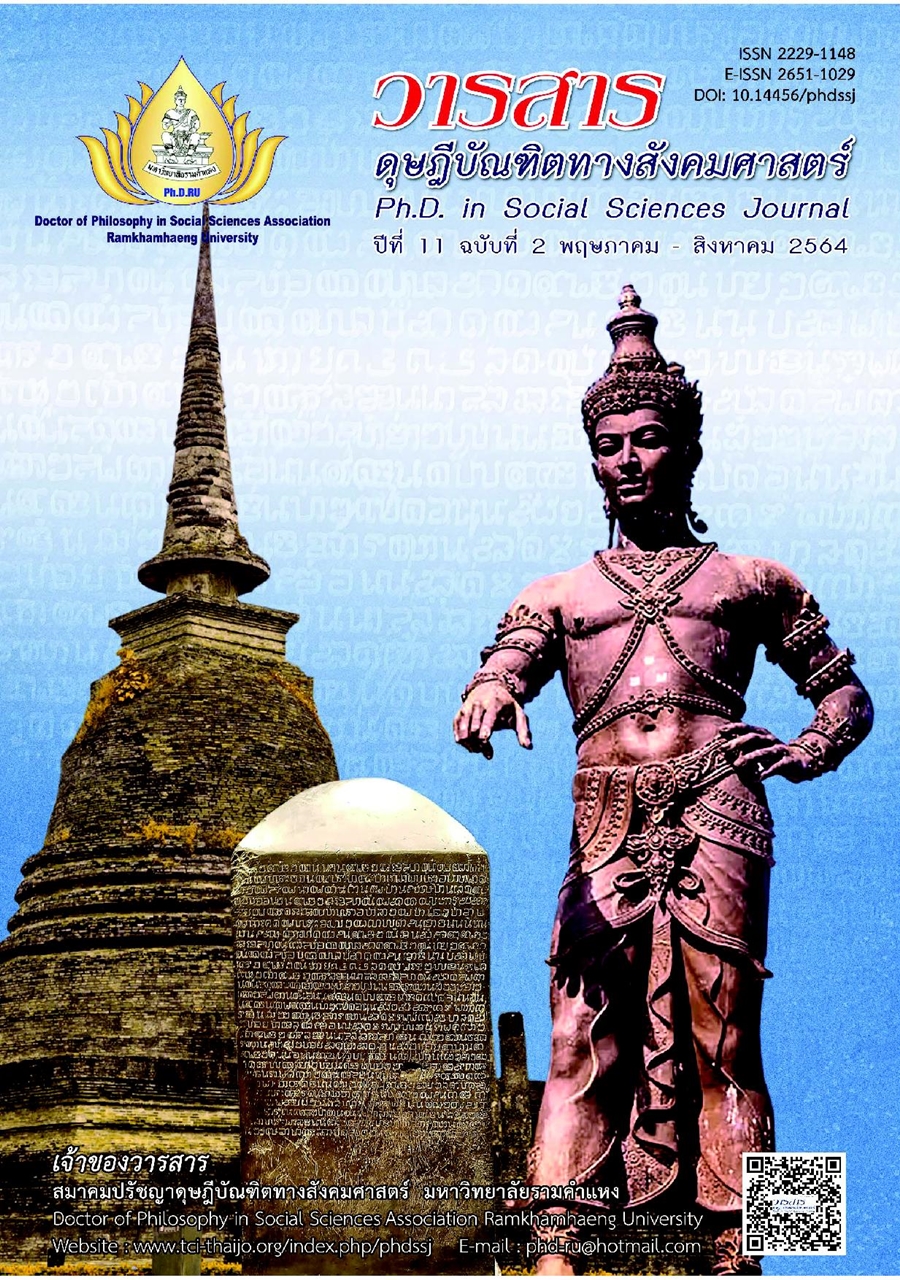Legal Measures to Limit and Control the Exercise of Freedom of Communication Through Computer Systems
Main Article Content
Abstract
This academic article aims to analyze the legal measures to limit and control the exercise of freedom of communication through computer systems under the Computer-related Offenses Act B.E. 2560 by applying the concept of rights and freedoms of the Natural law School, rights and liberties under Universal Declaration of Human Rights, legal state, rule of law, criminal justice administration, opportunity principle, and the principle of proportionality including the relevant law as a framework for analysis.
The result of the study indicates that the Computer-related Crime Act B.E 2560 section 14 (1) and (2) allows the official to determine the scope of importing data into a computer system widely. The law is enforced together with multiple legal measures such as the Article 112 and 116 of the Criminal Code, Martial Law Act B.E. 2457, Internal Security Act B.E. 2551, Emergency Decree on Public Administration in Emergency Situation B.E. 2548. Article 20 also establishes the Computer Data Screening Panel to enforce Administrative Procedural Laws and the Criminal Procedure Code to rule the case before being assigned the permission from the Ministry. For example, they could launch the rules, could investigate and rule the case. This is the monopoly of power without check and balance. This effects the principle of proportionality of the restriction and control the rights and freedom of communication through computer network.
Article Details
Academic articles, research articles, and book reviews in the Ph.D. in Social Sciences Journal are author’s opinions, and not the publisher’s, and is not the responsibility of the Ph.D. in Social Sciences Journal Philosophy Association, Ramkhamhaeng University. (In the case that research is done on human, the researcher has to be trained in Ethics for Doing Research on Human Training and has to produce the evidence of the training).
References
Amnesty International Thailand. (2020). Universal Declaration of Human Rights. Retrieve from https://www.amnesty.or.th/our-work/hre/what-udhr [In Thai]
Chongcharoenprasert, B. (2014). Relationship between the rule of law and the legal state. Retrieved from https://www.constitutionalcourt.or.th/occ_web/ewt_dl_link.php?nid=1266 [In Thai]
Homthip, P. (2017). Penalties for importing false information in social media. Retrieved from https://www.senate.go.th/assets/portals/93/fileups/253/files/article/Ssenate/6_63-2.pdf [In Thai]
Lojaya, V. (1993). Civil liberties. In Public law. Sukhothai Thammathirat Open University Press. [In Thai]
Suksri, S., Kusonsinwut, S., & Yingyongpathana, O. (2012). Impact of the Computer-related Crime Act 2007 and state policies on the right to freedom of expression. Freedom of Expression Documentation Center. [In Thai]
Suponphaiboon, S. (1978). Lectures on constitutional law. Ramkhamhaeng University Press. [In Thai]
Thai PBS News. (2015). The Supreme Court upholds the case of Section 112-Company Act, dismissed a 43-years-old programmer posted on facebook. Retrieved from https://news.thaipbs.or.th/content/4359 [In Thai]
National Advisory Committee. (1973). Criminal Justice standards and goals criminal justice system. Government Printing Office.
Suksri, P. (2016). General administrative law in the Supreme Administrative Court hearings: A study of the principle of proportionality and the principle of equality. Retrieved from https://www.parliament.go.th/ewtadmin/ewt/parliament_parcy/download/admincourt_journal/everyorganization/68.pdf [In Thai]


